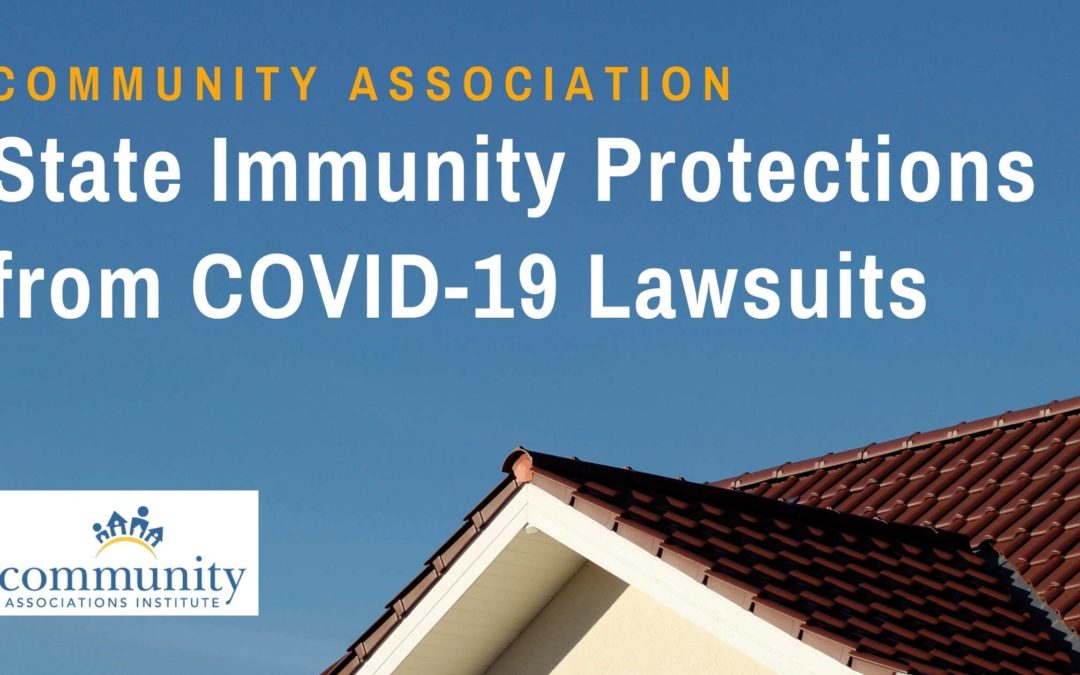The COVID-19 pandemic created unforeseen advocacy priorities for the community association housing model. One of the leading legislative efforts during the pandemic has been providing businesses and other entities with limited liability protections from COVID-19-related claims, which allows them to reopen safely without fear of lawsuits.
Federal efforts. Initially, there were hopes for a national approach to resolving COVID-19-related liability concerns for businesses and nonprofit corporations like community associations. CAI supported the Safe to Work Act introduced during the 116th Congress. This legislation would have provided limited immunity from COVID-19-related litigation to businesses and nonprofit corporations that could demonstrate compliance with the Centers for Disease Control and Prevention or state and local government protocols. Ultimately, the Safe to Work Act did not pass.
State efforts. Community associations are relying on their respective state legislatures to provide them with these protections. These bills would protect community associations and association agents from lawsuits stemming from COVID-19-related claims while acting in good faith and complying with local, state, and CDC guidelines when reopening common areas and amenities. Community associations are among the numerous entities that have been affected by COVID-19 and are still facing liability if they choose to reopen amenities and non-essential common areas.
Limited liability is critical for community associations’ economic recovery after the challenges from the pandemic by providing volunteer board members with these protections if and when they choose to reopen certain amenities. CAI supports legislation that limits a community association’s exposure to liability when acting in good faith and complying with local and state ordinances and CDC guidelines regarding opening or reopening amenities and governing association operations.
To date, 23 states have introduced legislation providing limited liability protections, including Alabama, Arkansas, Arizona, California, Colorado, Connecticut, Florida, Georgia (extension), Idaho, Illinois, Indiana, Maryland, Minnesota, Missouri, Montana, Nebraska, New Jersey, New York, Oregon, Pennsylvania, South Carolina, and Texas. Alabama, Arizona, Florida, Idaho, Indiana, and Montana passed these protections in 2021 with the support of CAI’s state legislative action committees and email campaigns. More conservative state legislatures are continuing to pass these types of protections, while more liberal state legislatures continue to grapple with how to enact them. CAI’s LACs will continue to pursue liability protections in states without existing laws.
Georgia, Iowa, Kansas, Michigan, Mississippi, Nevada, North Carolina, Ohio, Oklahoma, Tennessee, and Utah passed laws in 2020 protecting community associations from lawsuits filed by residents or guests claiming they contracted COVID-19 in association common areas.
CAI developed two versions of limited liability model language for our legislative action committees and lobbyists to present to legislators and ensure community associations are protected.
If you have any questions, please reach out to CAI’s Government and Public Affairs team at government@caionline.org or (888) 224-4321. To read more about CAI’s 2021 advocacy priorities and resources, click here. To find out what your state legislative action committee is working on, click here.



